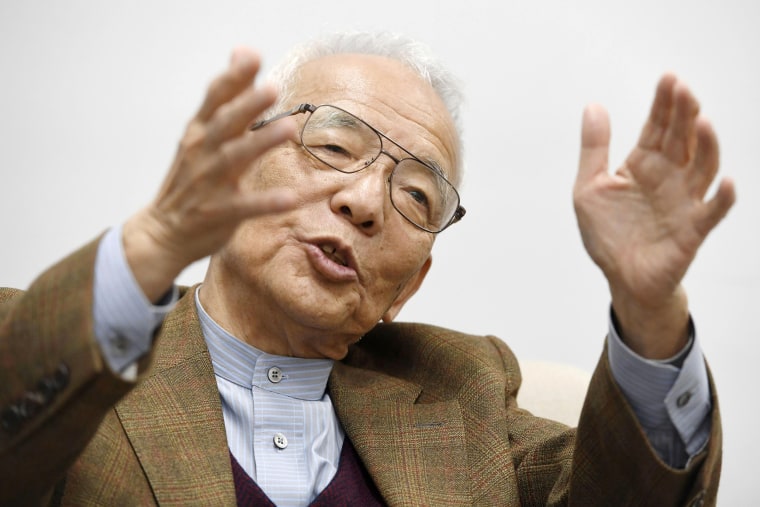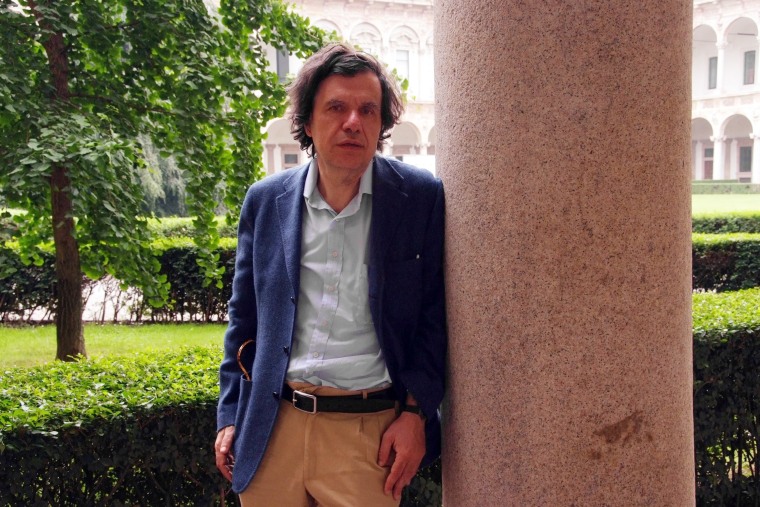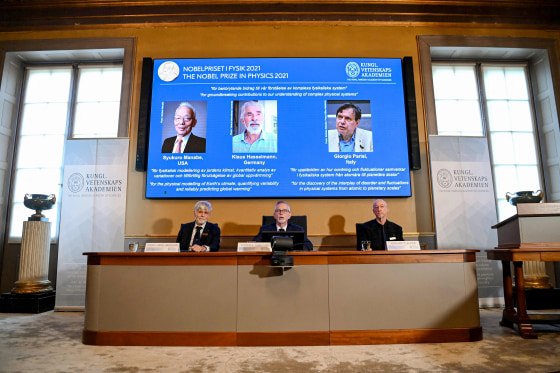Japanese-born American Syukuro Manabe, German Klaus Hasselmann and Italian Giorgio Parisi on Tuesday won the Nobel Prize in physics for work that helps understand complex physical systems, such as Earth’s changing climate.
Manabe and Hasselmann were awarded jointly for the physical modeling of the climate, "quantifying variability and reliably predicting global warming."
Parisi was awarded the other half of the prize "for the discovery of the interplay of disorder and fluctuations in physical systems from atomic to planetary scales."
The overarching theme that linked the joint prize was to do with disorder and fluctuation, and how together they help scientists predict events, Thors Hans Hansson, chair of the Nobel Committee for Physics, said.
"We can predict what is happening with the climate in the future if we know how to encode the chaotic weather," he said.

Manabe, a senior meteorologist at Princeton University, demonstrated how increased levels of carbon dioxide in the atmosphere lead to higher temperatures.
His work in the 1960s led the development of physical models of the Earth's climate, and his work laid the foundation for the development of current climate models.
Around a decade later, Hasselmann, a researcher in climate dynamics and professor emeritus at the Max Planck Institute for Meteorology in Germany, created a model that links weather and climate — answering the question of why climate models can be reliable despite weather being changeable and chaotic.
Parisi, a professor in theoretical physics at Sapienza University of Rome, discovered hidden patterns in disordered complex materials. His discoveries have made it possible to understand phenomena in areas such as physics, biology and neuroscience.

The link between Parisi’s and Manabe’s work is the recognition by Hasselmann that fluctuations are key for predictability, John Wettlaufer, a member of the Nobel Committee for Physics, said.
After the announcement, Parisi was asked if he had a message ahead of the COP26 climate change conference in Britain beginning Oct. 31. He said it was "very urgent that we take very strong decisions and move [at] a very strong pace” in tackling climate change.
"It’s clear for the future generation we have to act now in a very fast way," he said.
Download the NBC News app for breaking news and politics
The winners were announced Tuesday in front of journalists by Göran Hansson, secretary general of the Royal Swedish Academy of Sciences, in Stockholm.
Asked whether the committee was hoping to send a message to world leaders about the gravity of the climate crisis, Hansson responded: "The notion of global warming is resting on solid science: That’s the message."
The prestigious prize was established by the Swedish inventor and entrepreneur Alfred Nobel who stipulated in his will that most of his estate should be converted into a fund and invested. The income from the investments should then be distributed annually, in the form of prizes, "to those who, during the preceding year, have conferred the greatest benefit to humankind."

The physics prize comes with a medal representing nature in the form of a goddess resembling Isis, emerging from the clouds and holding in her arms a cornucopia. She is wearing a veil held up by the "genius of science."
The award also comes with 10 million Swedish kronor in prize money (more than $1.1 million).
The physics prize has been awarded 114 times to 215 individuals between 1901 and 2020.
Last year, three scientists won the award for groundbreaking research into black holes, the spacetime phenomena that have long consumed the imagination of both scientists and fiction writers.
Other notable past winners include Albert Einstein who was awarded the physics prize in 1921, and Pierre Curie and Marie Curie who won in 1903.
On Monday, the Nobel Prize in physiology or medicine was awarded to U.S.-based scientists David Julius and Ardem Patapoutian for their discoveries of receptors that allow humans to feel temperature and touch.
"This really unlocks one of the secrets of nature in terms of being one of our senses," said Thomas Perlmann, secretary for the Nobel Assembly and the Nobel Committee for Physiology or Medicine.
Prizes in chemistry, literature, peace and economics will be announced in the coming days.
